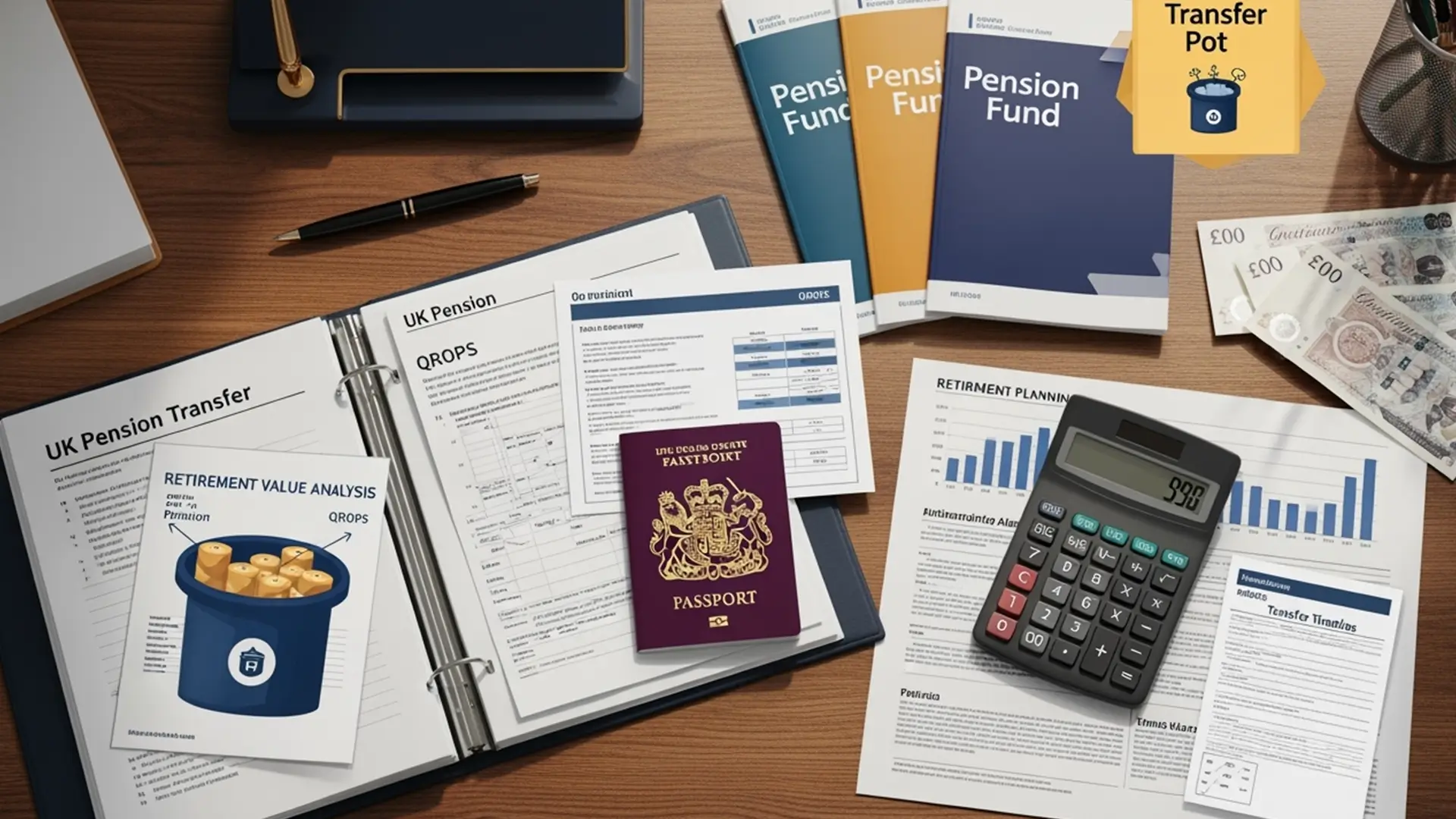The Future of Remote Work: How Second Citizenship Can Enhance Digital Nomadism
27th March 2025

Remote work has gone from a niche perk to a global norm.Thanks to advances in technology and a shift in workplace culture, more people than ever before are working from anywhere in the world. This change has paved the way for the rise of digital nomads—people who embrace location freedom while staying connected to their careers.But there’s a catch. Being a digital nomad isn’t always smooth sailing. From visa hassles to tax complications, the dream lifestyle comes with its fair share of challenges. That’s where second citizenship steps in. For remote workers craving flexibility, it can be a game-changer.
The Rise of Digital Nomadism
It’s no surprise that digital nomadism has grown rapidly in recent years. The COVID-19 pandemic showed companies that productivity isn’t tied to a physical office.Now, workers from diverse backgrounds are seizing the opportunity to work from sunny beaches, mountain towns, and bustling cities across the globe.Technology plays a major role here. Cloud platforms, project management tools, and reliable internet access have made remote collaboration easy and efficient. As a result, the modern professional doesn’t need to be tied to one location—just a good Wi-Fi connection.
Common Challenges for Digital Nomads
While the lifestyle is appealing, there are some tricky hurdles:
Visa restrictions: Most tourist visas are short-term and don’t allow for work.
Tax confusion: Navigating tax obligations in multiple countries can be overwhelming.
Healthcare access: Not every destination offers high-quality or affordable healthcare.
Banking & admin: Setting up a bank account or registering a business in a foreign country can be time-consuming.
These issues can take the shine off the digital nomad lifestyle. That’s where second citizenship offers a unique solution.
How Second Citizenship Makes Life Easier
Getting a second passport isn’t just about collecting stamps—it can genuinely transform the way you live and work abroad.From travel to taxes, here’s how it can simplify life for remote workers.
Greater Global Mobility
One of the biggest perks of holding a second passport is the freedom to travel.Many Citizenship by Investment (CBI) programmes offer passports with visa-free or visa-on-arrival access to over 100 countries. That means fewer visa applications and less red tape when moving from one country to another.
Tax Efficiency
Some countries with CBI options have favourable tax regimes. They might not tax foreign income, capital gains, or inheritance.For a digital nomad earning money online, this can mean keeping more of what they earn.
Business and Banking Access
Second citizenship can make it easier to open bank accounts, invest, and even launch a business in another country.If your new passport gives you access to a larger regional market, the opportunities multiply.
Quality of Life Benefits
Some countries offering second citizenship also boast excellent healthcare, modern infrastructure, and a high standard of living.This can offer peace of mind, especially for nomads who travel with families or want to settle in one place for a while.
Where to Get a Second Citizenship
Several countries offer CBI programmes tailored to global professionals:
Caribbean Nations: Places like St. Kitts & Nevis and Dominica provide affordable and quick paths to citizenship. Their passports are strong for global travel and come with favourable tax policies.
European Options: Malta, for example, offers a route to EU citizenship, which grants the right to live and work anywhere in the EU.
Most programmes require either a donation to a government fund or an investment in real estate or business. Processing times can range from a few months to over a year, depending on the country.
Things to Consider First
Before jumping in, there are a few key factors to keep in mind:
Legal obligations: Dual citizenship may not be recognised by your home country. Always check the rules.
Tax residency: You might still owe taxes in your original country, depending on how much time you spend there or where you earn your income.
Costs: CBI programmes can be expensive. Consider the long-term value and benefits versus the upfront costs.
Professional advice: Work with experts in immigration and international tax to make informed decisions.
Looking Ahead: The Remote Work Revolution
The future of work is increasingly flexible and international. Countries are adapting too—many now offer special digital nomad visas to attract remote workers.But for those looking for more permanent freedom, second citizenship offers advantages that a temporary visa simply can’t match.For digital nomads, second citizenship is more than a travel perk. It’s a smart strategy for enhancing mobility, security, and financial freedom in a borderless world.
Final Thoughts
As remote work continues to reshape our lives, second citizenship is becoming a valuable asset. Whether you’re looking to simplify travel, save on taxes, or set up a base in a new region, a second passport opens doors.If you’re living the digital nomad lifestyle or planning to in the future, exploring your options for second citizenship could be one of the smartest moves you make.
Ready to get started?
Speak to our friendly team of experts today to learn more or to begin your journey.
Recommended for You
The Future of Remote Work: How Second Citizenship Can Enhance Digital Nomadism

Published on: 27th March 2025
Remote work has gone from a niche perk to a global norm.Thanks to advances in technology and a shift in workplace culture, more people than ever before are working from anywhere in the world. This change has paved the way for the rise of digital nomads—people who embrace location freedom while staying connected to their careers.But there’s a catch. Being a digital nomad isn’t always smooth sailing. From visa hassles to tax complications, the dream lifestyle comes with its fair share of challenges. That’s where second citizenship steps in. For remote workers craving flexibility, it can be a game-changer.
The Rise of Digital Nomadism
It’s no surprise that digital nomadism has grown rapidly in recent years. The COVID-19 pandemic showed companies that productivity isn’t tied to a physical office.Now, workers from diverse backgrounds are seizing the opportunity to work from sunny beaches, mountain towns, and bustling cities across the globe.Technology plays a major role here. Cloud platforms, project management tools, and reliable internet access have made remote collaboration easy and efficient. As a result, the modern professional doesn’t need to be tied to one location—just a good Wi-Fi connection.
Common Challenges for Digital Nomads
While the lifestyle is appealing, there are some tricky hurdles:
Visa restrictions: Most tourist visas are short-term and don’t allow for work.
Tax confusion: Navigating tax obligations in multiple countries can be overwhelming.
Healthcare access: Not every destination offers high-quality or affordable healthcare.
Banking & admin: Setting up a bank account or registering a business in a foreign country can be time-consuming.
These issues can take the shine off the digital nomad lifestyle. That’s where second citizenship offers a unique solution.
How Second Citizenship Makes Life Easier
Getting a second passport isn’t just about collecting stamps—it can genuinely transform the way you live and work abroad.From travel to taxes, here’s how it can simplify life for remote workers.
Greater Global Mobility
One of the biggest perks of holding a second passport is the freedom to travel.Many Citizenship by Investment (CBI) programmes offer passports with visa-free or visa-on-arrival access to over 100 countries. That means fewer visa applications and less red tape when moving from one country to another.
Tax Efficiency
Some countries with CBI options have favourable tax regimes. They might not tax foreign income, capital gains, or inheritance.For a digital nomad earning money online, this can mean keeping more of what they earn.
Business and Banking Access
Second citizenship can make it easier to open bank accounts, invest, and even launch a business in another country.If your new passport gives you access to a larger regional market, the opportunities multiply.
Quality of Life Benefits
Some countries offering second citizenship also boast excellent healthcare, modern infrastructure, and a high standard of living.This can offer peace of mind, especially for nomads who travel with families or want to settle in one place for a while.
Where to Get a Second Citizenship
Several countries offer CBI programmes tailored to global professionals:
Caribbean Nations: Places like St. Kitts & Nevis and Dominica provide affordable and quick paths to citizenship. Their passports are strong for global travel and come with favourable tax policies.
European Options: Malta, for example, offers a route to EU citizenship, which grants the right to live and work anywhere in the EU.
Most programmes require either a donation to a government fund or an investment in real estate or business. Processing times can range from a few months to over a year, depending on the country.
Things to Consider First
Before jumping in, there are a few key factors to keep in mind:
Legal obligations: Dual citizenship may not be recognised by your home country. Always check the rules.
Tax residency: You might still owe taxes in your original country, depending on how much time you spend there or where you earn your income.
Costs: CBI programmes can be expensive. Consider the long-term value and benefits versus the upfront costs.
Professional advice: Work with experts in immigration and international tax to make informed decisions.
Looking Ahead: The Remote Work Revolution
The future of work is increasingly flexible and international. Countries are adapting too—many now offer special digital nomad visas to attract remote workers.But for those looking for more permanent freedom, second citizenship offers advantages that a temporary visa simply can’t match.For digital nomads, second citizenship is more than a travel perk. It’s a smart strategy for enhancing mobility, security, and financial freedom in a borderless world.
Final Thoughts
As remote work continues to reshape our lives, second citizenship is becoming a valuable asset. Whether you’re looking to simplify travel, save on taxes, or set up a base in a new region, a second passport opens doors.If you’re living the digital nomad lifestyle or planning to in the future, exploring your options for second citizenship could be one of the smartest moves you make.
Need professional financial advice?
We have 18 offices across the globe and we manage over $2billion for our 20,000+ clients









